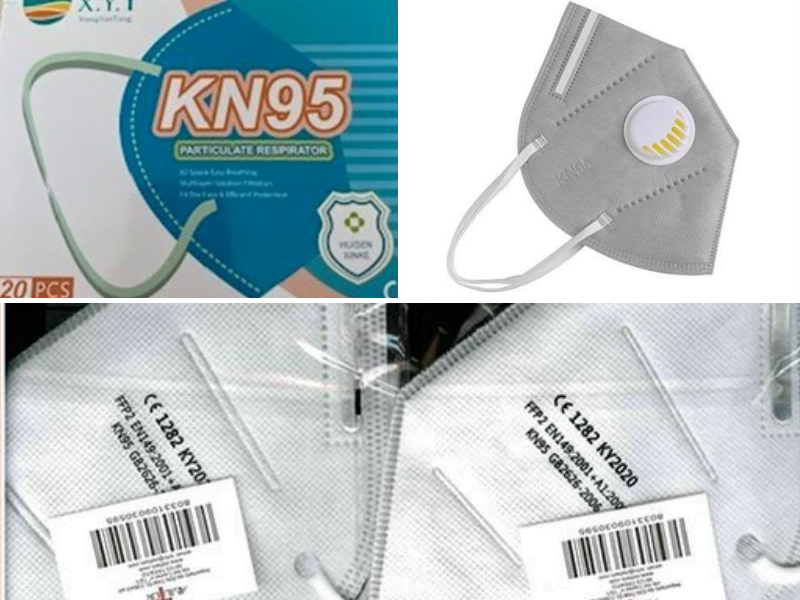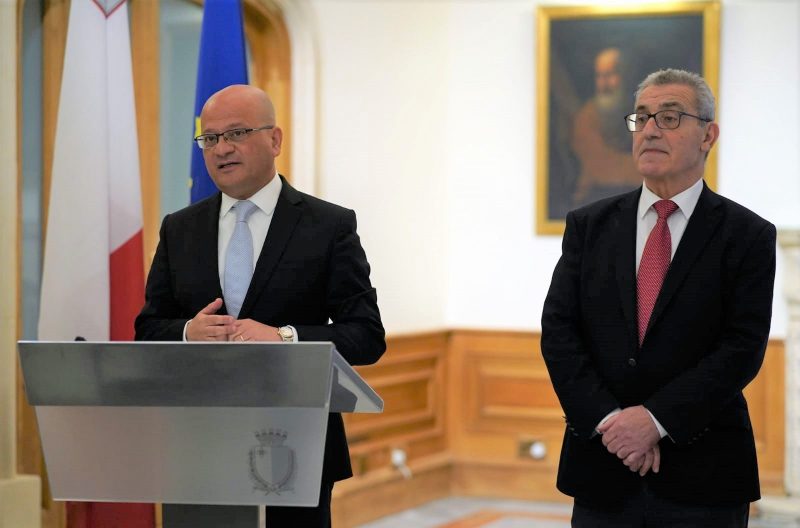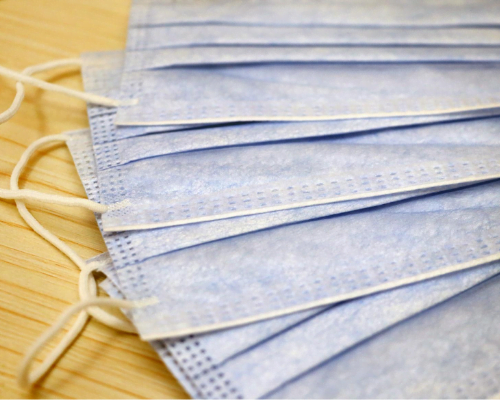More than 90 alerts linked to particle filter facemask products originating from China have this year been flagged by the European Commission’s Safety Gate rapid alert system for posing a health risk.
An analysis by The Shift found that 95 alerts referred to at least 67 different brands of masks, the rest of which were marked as unknown. Of the 95 alerts, a majority have been categorised as serious.
Malta submitted three alerts. One being for a KN 95 particulate respirator mask of the brand X.Y.T XiangYanTang, the batch number of which is unknown. The second, a KN 95 type, with an unknown brand and from an unknown batch, and the third was an FFP2 mask by the brand Adiutor from an unspecified batch manufactured in March.

The three masks for which an alert was submitted by Malta.
In all three cases, the products bore a CE marking but not certified as protective equipment by a relevant body.
While some alerts refer to a specific batch of masks from a brand, other batch numbers are labelled as unknown, making it unclear as to whether the alarm is raised on a specific batch or more.
An urgent need for face masks hit the world in 2020 with the emergence of the COVID-19 pandemic. While the face mask necessity remains as the pandemic continues, more products are being identified as faulty or fake.
The idea of the abundance of the face masks emerging from China posing health risks is better understood when comparing it with similar alerts on face masks from other countries. Besides the alerts for the products from China, the system registered only one from Ukraine, one from Spain, one from Vietnam, one from Denmark and two from Mexico.
Reasons as to why the masks pose a health risk range from masks having inappropriate structures, to not protecting the face properly against viral particles, to possessing insufficient filter retention.

Some packages of the facemasks for which health risk alerts were registered by the European Commission’s Safety Gate.
The alert system by the commission enables quick exchange of information between EU/EEA member states, the UK, and the European Commission about dangerous non-food products posing a risk to the health and safety of consumers.
The abundance of face masks from China which pose health risks is of significance locally when taking into consideration Malta’s receptiveness to masks from the country, tens of thousands of which were received with open arms by both Foreign Minister Evarist Bartolo and former President Marie Louise Coleiro Preca back in April.

Deo Debattista (left) and Evarist Bartolo at a press conference on face masks received from China. Photo: DOI, Reuben Piscopo.
Malta, like other countries in Europe, received thousands of protective face masks from China. As the pandemic spread in March and April – a time when China was being blamed for not containing the virus at an early stage and under-reporting deaths – the country ‘donated’ protective equipment to European countries.
Coleiro Preca had heaped praise on “our friends from China” for donating 20,000 masks. A few days later, Bartolo had welcomed a gift of 110,000 face masks (approximately costing some €5,000) from a Chinese film production company.
This occurred while countries around the world, including The Netherlands, Spain, Philippines, Czech Republic and Turkey were recalling or sending back coronavirus testing kits and medical supplies that were Chinese-made, saying these were substandard or simply did not work.
The alerts by the EU platform gives such statements more weight, as further questions are raised around the safety of masks from China.
On Thursday, The Shift reported that Malta was one of the countries receiving “fake and faulty” Chinese COVID-19 masks, according to the findings of an investigation conducted throughout Europe by the Organised Crime and Corruption Reporting Project (OCCRP).
The investigation results published in July by the OCCRP and 16 European media partners found “scores” of cases in which personal protective equipment was sold throughout Europe using falsified documents, which claimed the face masks met EU safety rules, such as stamping with the standard ‘CE’ mark on products.
The European Anti-Fraud Office (OLAF), as well as national law enforcement agencies, are currently investigating the use of false and misleading certificates for protective equipment.












